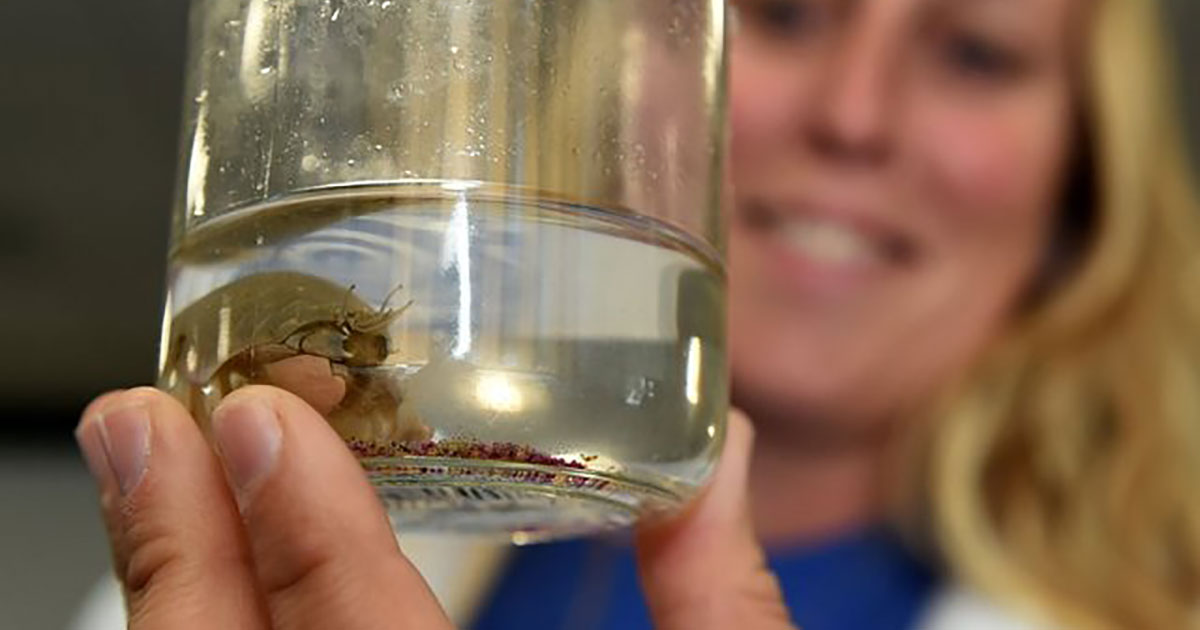Sand crabs, a key species in beach ecosystems, were found to have increased adult mortality and decreased reproductive success when exposed to plastic microfibers, according to a new Portland State University study.
Dorothy Horn, a Ph.D. candidate in PSU's Earth, Environment and Society program, examined the effects of exposure to microfibers on adult mortality, reproductive output and embryonic development of the sand crab, a dominant organism on sandy beaches from British Columbia to Baja California, Mexico. Sand crabs, which eat by filtering small particles from the water, are considered indicator species because their health reflects the health of the ecosystem.
"When pollutants affect sand crabs, it's also affecting most organisms around it in that ecosystem," Horn said. "We don't eat them, but they're a bright blinking light for 'There's a problem in this area.'"
Horn found microplastics in all the sand samples analyzed from 19 beaches along the Oregon coast. She then conducted a lab experiment to mimic the concentrations of microfibers the crabs would be exposed to on the beach.
The study found that with an increasing number of microplastic fibers internalized, crab mortality increased while the number of days that a crab held live/viable eggs decreased. Exposure to microplastics also caused variability in a crab's embryonic development rates.
Horn said sand crabs are prey for shorebirds, nearshore fish and some marine mammals, and their increased mortality and decreased reproductive performance following exposure to microplastics could have potential effects on species higher up on the food chain.
"We've proved it's causing them harm, and it can have harmful effects on these other organisms," Horn said.
Journal Reference: DorothyA. Horn, Elise F. Granek, Clare L. Steele. Effects of environmentally relevant concentrations of microplastic fibers on Pacific mole crab (Emerita analoga) mortality and reproduction. Limnology and Oceanography Letters, 2019; DOI: 10.1002/lol2.10137
Story by Portland State University



